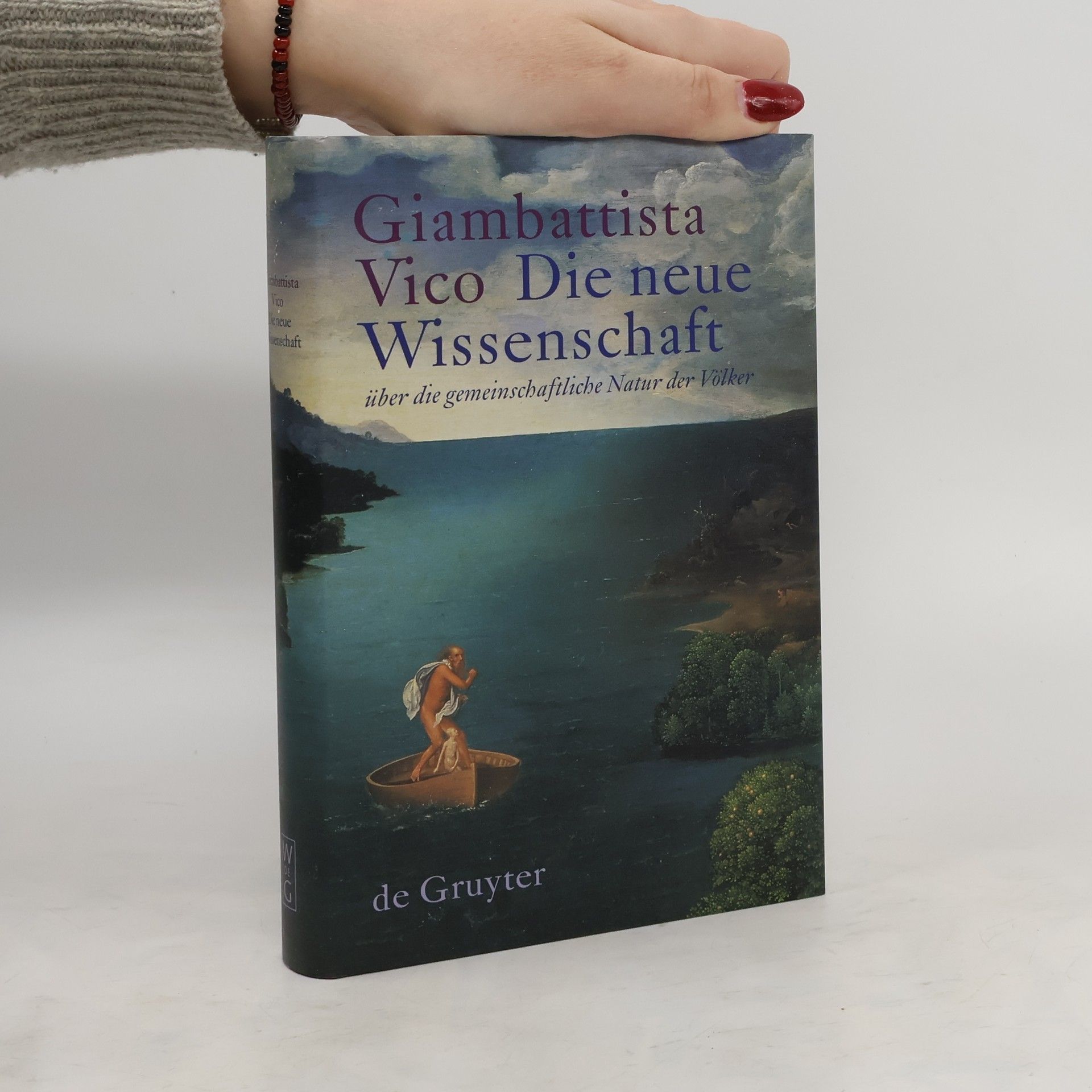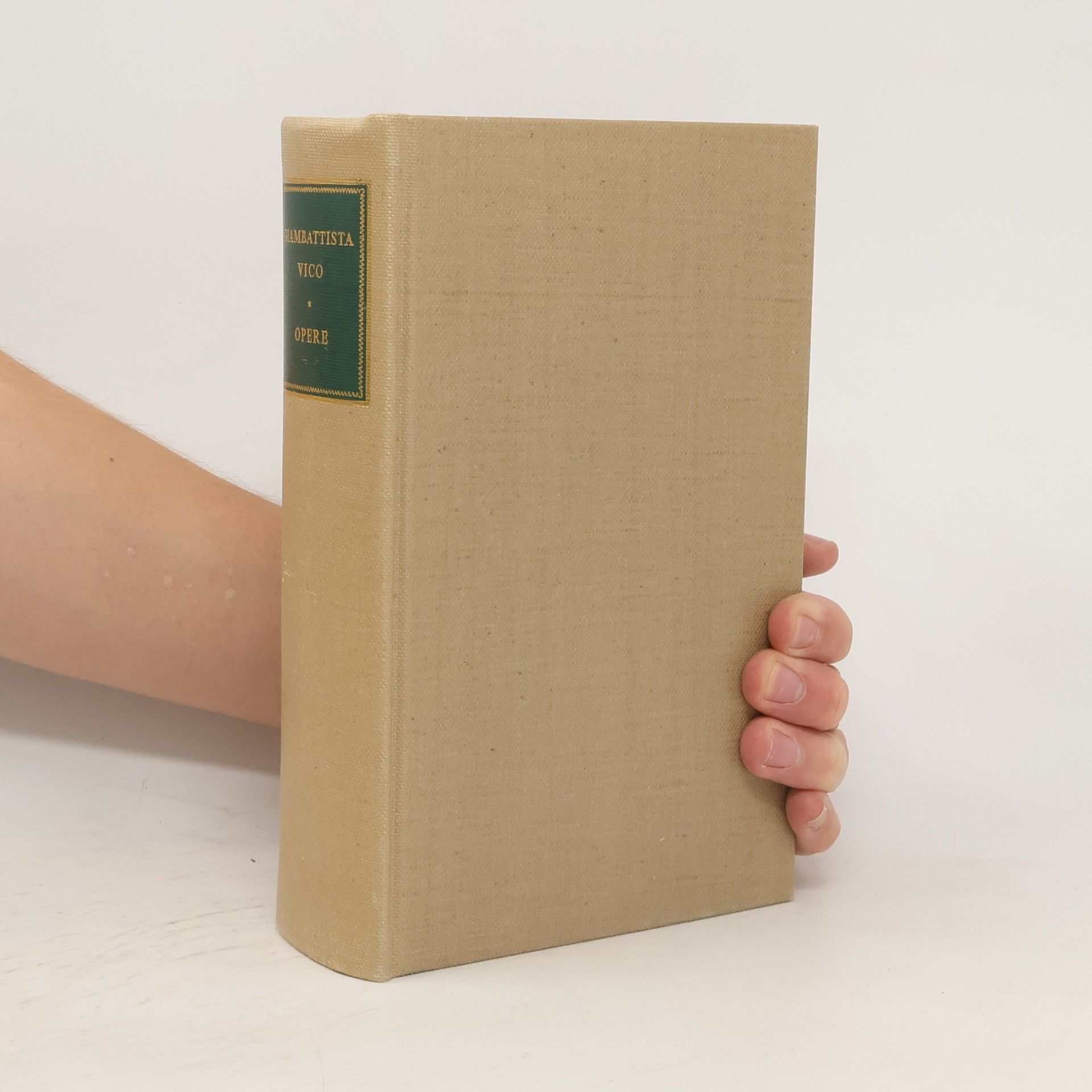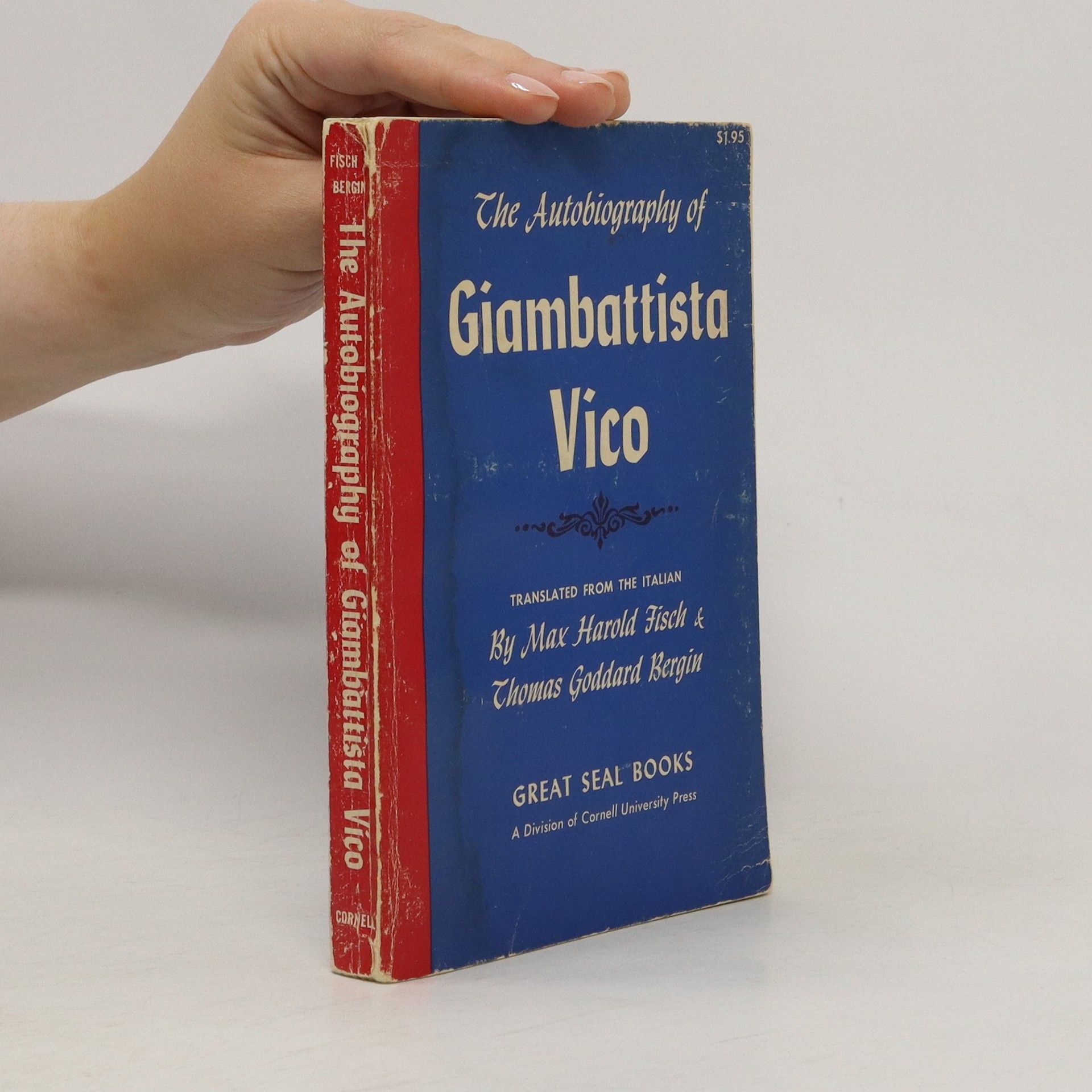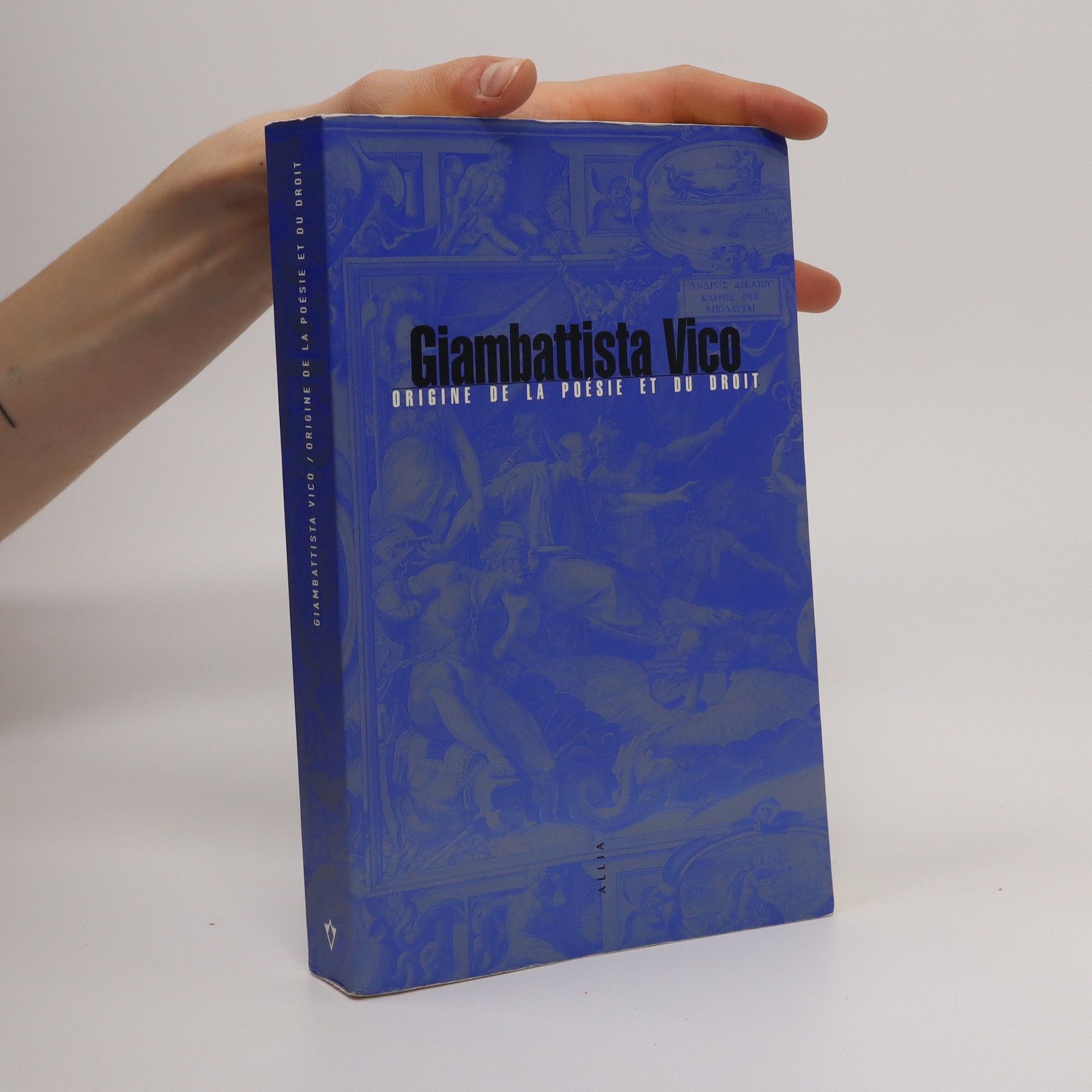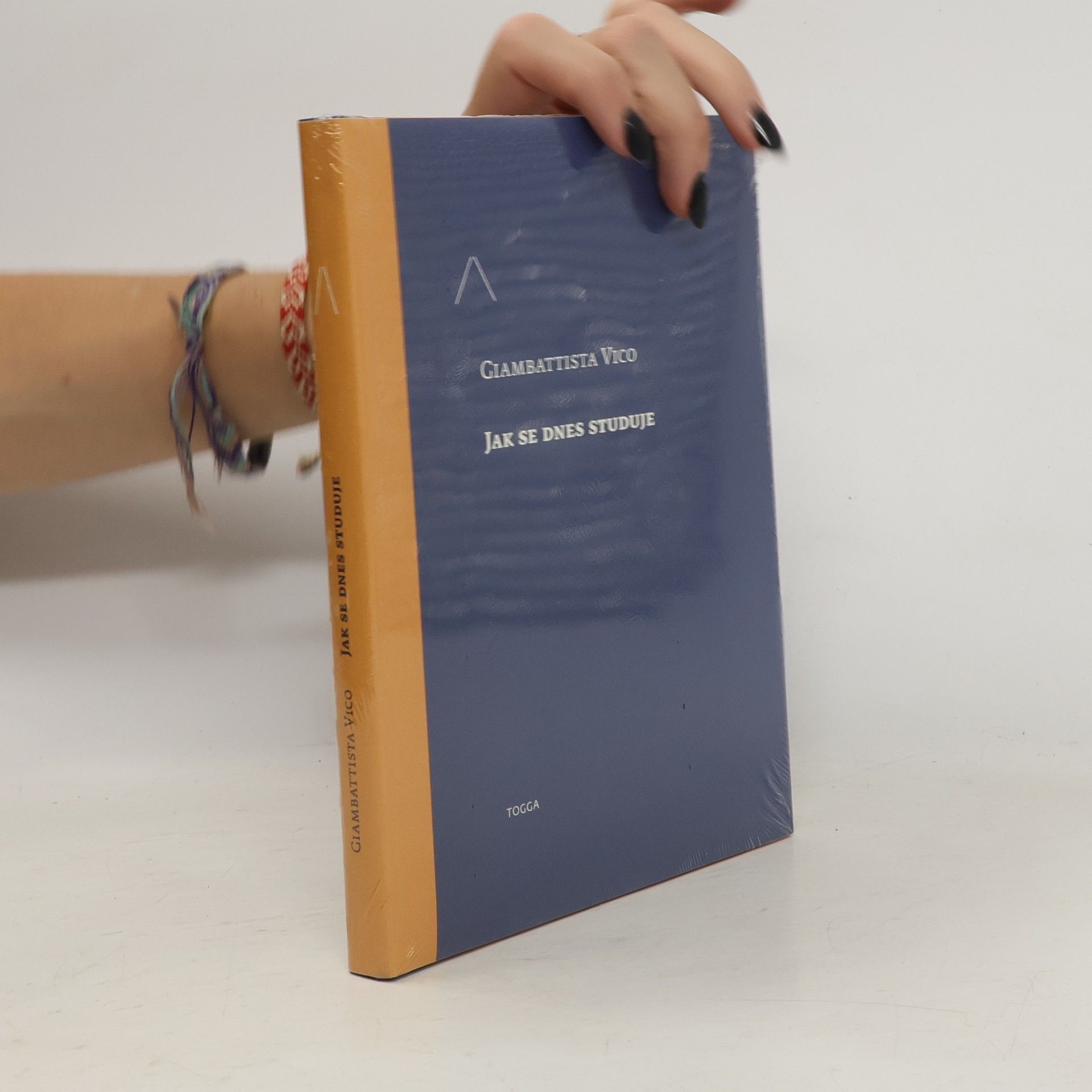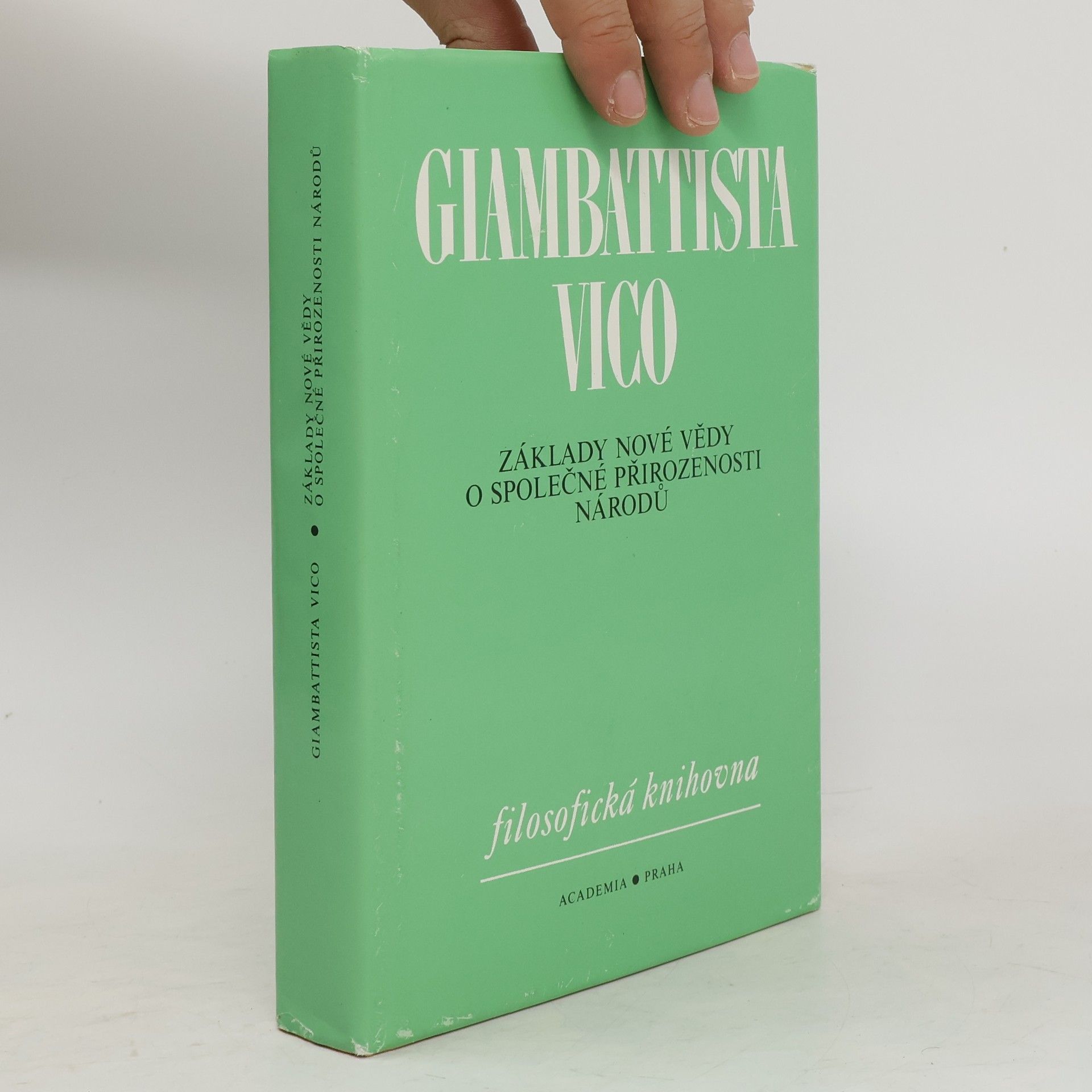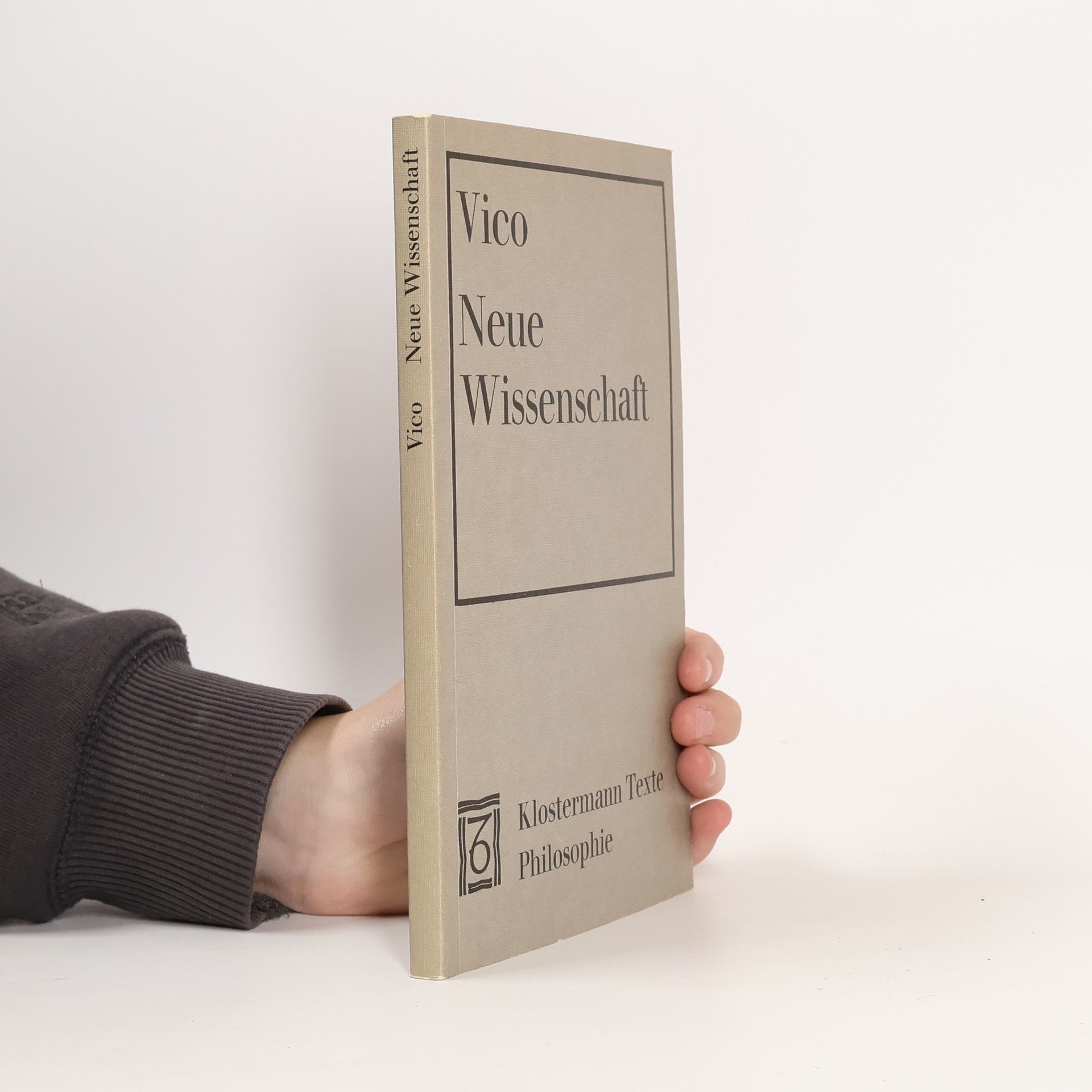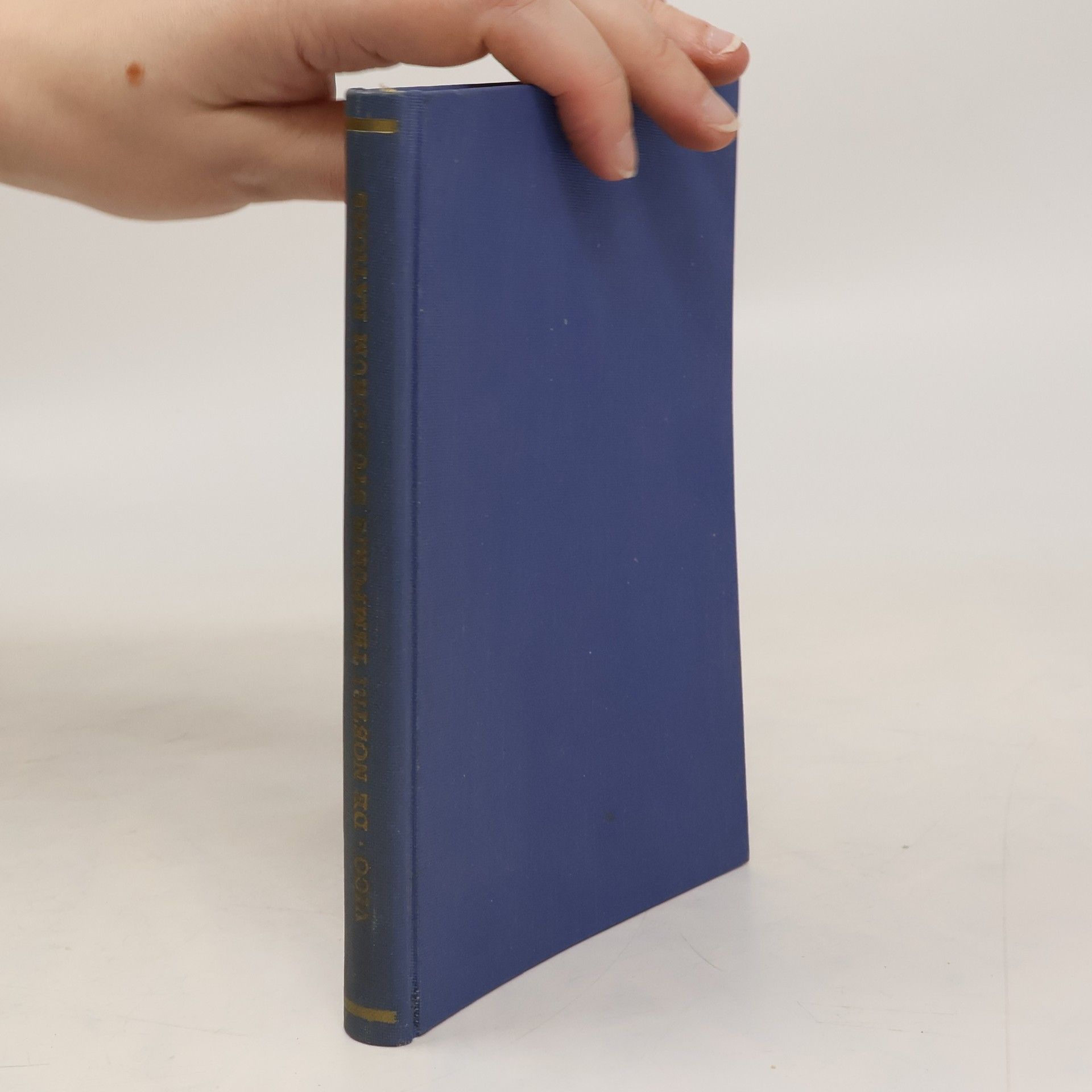Die Erste Neue Wissenschaft (1725)
- 372 pages
- 14 hours of reading
Vicos »Scienza nuova« von 1725, nun erstmals auf Deutsch, ist ein bedeutendes Werk, das die politische Welt philosophisch erfassen möchte. Im Gegensatz zu Descartes, der Wissen aus reinem Denken ableitet, betont Vico die Bedeutung menschlicher Schöpfungen und kultureller Zeichen. Er verbindet Geschichts-, Sprach- und Wissenschaftsphilosophie, was die Grundlagen der modernen Kulturwissenschaft legt. In zwei Kapiteln untersucht er die Entwicklung politisch-juristischer und sprachlich-semiotischer Strukturen der frühen Völker und betrachtet diese als Teil einer universalhistorischen Bewegung der Menschheit.



